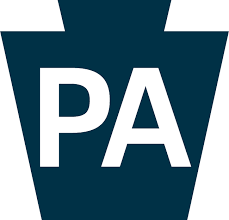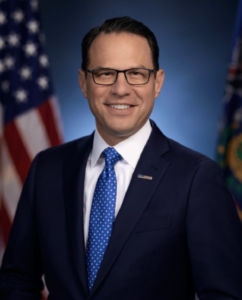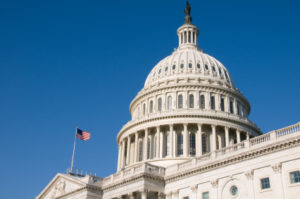PA Health Policy Update for October 6
The following is an update of selected state health policy developments in Pennsylvania from October 2 – 6. (Some of the language used below is taken directly from state documents.)
FY 2023-20204 Budget Update
The General Assembly continues to work on finalizing the FY 2023-2024 state budget. This week the state House of Representatives passed an amended version of the Fiscal Code (House Bill 1300) by a vote of 121-82 and sent it back to the Senate for consideration. The House of Representatives also passed an addendum to the General Appropriations Act (House Bill 1456) and a tax code (House Bill 1219) and sent them to the Senate for consideration. These pieces of legislation were not negotiated with Senate leadership in advance, so it is unclear how the Senate will proceed, or when the FY 2023-2024 budget process will be completed.
General Assembly
- The state House of Representatives and Senate convened for session in Harrisburg this week. The following is an overview of selected health care focused legislative activity.
-
- The House of Representatives adopted House Resolution 165, which directs the Legislative Budget and Finance Committee to examine the effect of workforce shortages on state-supported Medicaid home and community-based services waiver programs.
-
- The Senate Health & Human Services Committee held an informational meeting on Tuesday to examine barriers to addiction treatment. Immediately following the information meeting, the committee held a voting meeting and favorably reported the following bills.
- Senate Bill 941, which enables certain flexibilities for addiction treatment providers.
- Senate Bill 721, which establishes the Women, Infants, and Children (WIC) advisory board.
- House Bill 1351, which makes certain changes to the Rural Health Redesign Center Authority.
- The Senate Health & Human Services Committee held an informational meeting on Tuesday to examine barriers to addiction treatment. Immediately following the information meeting, the committee held a voting meeting and favorably reported the following bills.
Find a recording of the hearing here.
-
- The House Health Committee’s Subcommittee on Health Facilities held an informational meeting on Wednesday to examine the effects of hospital consolidation. Find a recording of the hearing here.
-
- The House Human Services Committee and Aging & Older Adult Services Committee held a joint informational meeting Wednesday on personal care homes and assisted living facilities. Find a recording of the hearing here.
- The state House of Representatives and Senate are now recessed until Monday, October 16.
Department of Human Services
- The Department of Human Services (DHS) has announced its intent to make one-time enhanced supplemental payments to eligible public and non-public Medical Assistance (MA) nursing facilities. Find additional information in this Pennsylvania Bulletin notice.
- DHS Secretary Dr. Val Arkoosh has reminded Pennsylvanians who receive health care coverage through Medicaid or CHIP that the cost of COVID-19 vaccines, tests, and treatments are covered by the programs. Find additional information in this press release issued by DHS.
- DHS has issued a Medical Assistance Bulletin announcing the addition of new procedure codes to the Medical Assistance (MA) program for vaccine administration.
- DHS has issued a Medical Assistance Bulletin notifying providers about updates to the provision of Medicaid-covered services to beneficiaries experiencing homelessness when delivered in their lived environment, also known as “street medicine.”
- DHS has published Provider Quick Tip #270 with important information for providers who are required to revalidate clinicians at multiple locations.
- DHS has released its report on Medicaid managed care enrollment in Pennsylvania for the month of August.
- DHS has shared the following presentations used at the Medical Assistance Advisory Committee (MAAC) meeting on September 28.
- Office of Developmental Programs (ODP) Updates
- Office of Mental Health & Substance Abuse Services (OMHSAS) Updates
- Aging Master Plan Presentation
- Office of Medical Assistance Programs (OMAP) Updates
- Office of Long-Term Living (OLTL) Updates
- List of Medical Assistance Bulletins
- DHS has published revisions to the participating drug company list for the Medicaid Drug Rebate Program. These changes are effective October 1, 2023.
Department of Health
The Department of Health (DOH) has invited stakeholders to participate in an information-gathering listening session regarding patient access to controlled substances in the commonwealth. The listening session will be held on Wednesday, October 11 from 10:00 – 11:30 a.m. Find additional information on how to register and participate here.
DOH has announced it will be implementing new regulatory requirements for all long-term care facilities beginning October 31. The new requirements include changes to the application for licensure, which will require additional information, documentation, and public disclosure. DOH has provided interpretive guidance for these changes on its website here.
Revenue Collection Update
The Department of Revenue has announced Pennsylvania collected $4.1 billion in General Fund revenue in September, which was $140.2 million, or 3.3 percent, less than anticipated. Fiscal year-to-date General Fund collections total $9.8 billion, which is $167.4 million, or 1.7 percent, below estimate.
Medicaid Continuous Coverage Unwinding
The Department of Human Services (DHS) is maintaining an online dashboard with Medicaid continuous coverage unwinding data. The data on this dashboard tracks the renewal process by county and zip code. Additional updates and resources about the Medicaid eligibility renewal process may be found here.
DHS has published the following resources to help providers educate patients about Medicaid renewals and what to do if they are no longer eligible for Medicaid.
Stakeholder Events 
DOH – Renal Disease Advisory Committee – October 20
The Renal Disease Advisory Committee will hold its quarterly public meeting on Friday, October 20 from 10:00 a.m. to 12:00 p.m. Find additional information and details on how to participate in this Pennsylvania Bulletin notice.
DOH – Special Pharmaceutical Benefits Program Advisory Council – October 26
The Special Pharmaceutical Benefits Advisory Council will hold a public meeting on Thursday, October 26 from 10:00 a.m. to 3:00 p.m. The meeting will be held in person and virtually. Find additional details on how to participate in this Pennsylvania Bulletin notice.
DOH – Traumatic Brain Injury Advisory Board Meeting – November 3
The Traumatic Brain Injury Advisory Board will hold a public meeting on Friday, November 3 from 10:00 a.m. to 3:00 p.m. The meeting will be held in person at the Pennsylvania Training and Technical Assistance Network, 6340 Flank Drive, Harrisburg, PA in the Cambria conference room. Find additional information in this Pennsylvania Bulletin notice.







 That continuous Medicaid eligibility, however, will end on April 1 and states have one year to redetermine Medicaid eligibility for everyone currently enrolled in the program. In Pennsylvania, the state estimates that nearly 600,000 of the 3.6 million people now participating in the program will lose their eligibility and another nearly 600,000 may be in danger of doing so.
That continuous Medicaid eligibility, however, will end on April 1 and states have one year to redetermine Medicaid eligibility for everyone currently enrolled in the program. In Pennsylvania, the state estimates that nearly 600,000 of the 3.6 million people now participating in the program will lose their eligibility and another nearly 600,000 may be in danger of doing so. Pennsylvania Act 2, passed earlier this year, appropriates $225 million in federal money and the state has earmarked a portion of that money for hospitals based on how many beds they have. Hospitals that serve especially high proportions of Medicaid patients, however, will receive funding over and above the amount targeted to them based on bed count alone.
Pennsylvania Act 2, passed earlier this year, appropriates $225 million in federal money and the state has earmarked a portion of that money for hospitals based on how many beds they have. Hospitals that serve especially high proportions of Medicaid patients, however, will receive funding over and above the amount targeted to them based on bed count alone. Among the possible reasons for this low rate, observers speculate, is greater vaccine hesitancy among low-income individuals (as identified in a nation-wide survey), less flexible work schedules, and economic barriers such as lack of transportation or child care.
Among the possible reasons for this low rate, observers speculate, is greater vaccine hesitancy among low-income individuals (as identified in a nation-wide survey), less flexible work schedules, and economic barriers such as lack of transportation or child care. In separate news releases the Wolf administration announced that Miller, who has led DHS since 2015, “will be moving on to a new opportunity outside Pennsylvania” and leave her job at the end of April and that she will be replaced by Meg Snead, who currently serves as the governor’s Secretary of Policy and Planning.
In separate news releases the Wolf administration announced that Miller, who has led DHS since 2015, “will be moving on to a new opportunity outside Pennsylvania” and leave her job at the end of April and that she will be replaced by Meg Snead, who currently serves as the governor’s Secretary of Policy and Planning.